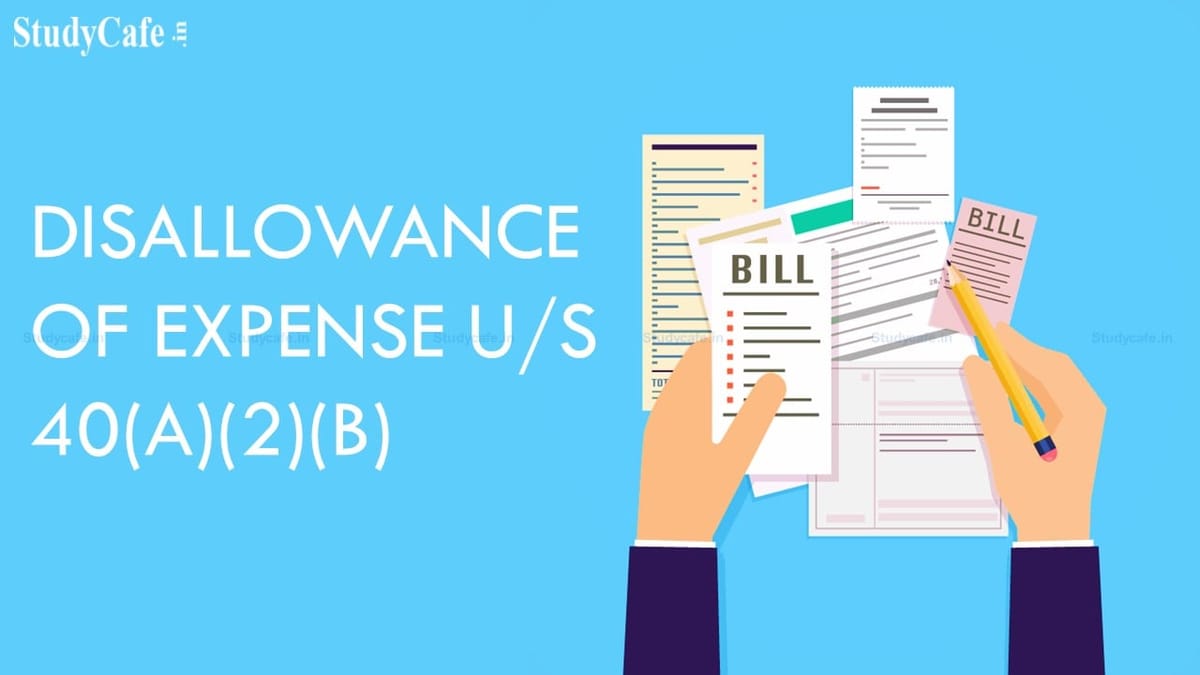Disallowance of expense u/s 40(A)(2)(b): The burden of proof of excessive/unreasonable expense is on AO
Deepak Gupta | Jun 4, 2022 |

Disallowance of expense u/s 40(A)(2)(b): The burden of proof of excessive/unreasonable expense is on AO
The Income Tax Appellate Tribunal (ITAT) bench of Miss Astha Chandra and Mr. Anil Chaturvedi have held that for disallowing expense u/s 40(A)(2)(b) u/s the AO must establish that the payment is excessive or unreasonable which should be on the basis of material on record and cannot be based on merely surmises and conjectures.
In this case, the assessee was asked to justify the payment of salary and professional fees u/s 40(A)(2)(b) of the Act to which the assessee made the submissions that were not found acceptable to AO.
AO noted that in the hike in salary was of more than 125% and 50% respectively whereas the increase in turnover of the assessee was only to the extent of 30% and therefore the increase in salary was not justifiable.
Similarly, AO was of the view that the nature of business of the assessee was of trading in nature and did not require any consultancy services. He accordingly held the number of consultancy charges including service tax to be not justifiable.
CIT(A) vide order dated 24.01.2019 in Appeal No.91/18-19 upheld the order of AO.
11. We have heard the rival submissions and perused the material available on record. The issue in the present ground is with respect to the disallowance made u/s 40(A)(2)(b) of the Act. Section 40A(2) of the Act, puts a curb on expenditure in respect of which payment has been made to close associates having substantial interest in the company for goods, services and facilities. Under this section, the AO can disallow only that portion of the total expenditure, which in his opinion, is excessive or unreasonable. The onus is on the AO to form an opinion that the expenditure claimed as excessive/unreasonable having regard to the fair market value for which the payment is made. This opinion of the AO cannot be arbitrary but must be on the basis of determining the fair market value for which payment is made. The AO must establish that the payment is excessive or unreasonable which should be on the basis of material on record and cannot be based on merely surmises and conjectures. The reasonableness of the expenditure is to be seen from the view point of the businessmen and not from the view of Revenue authorities. The expediency, legitimacy and the business needs will have to be examined from the assessee’s point of view and not from the department’s view as held by Hon’ble Gujarat High Court in the case of Voltamp Transformers Pvt. Ltd. vs. CIT 129 ITR 105 (Guj). We further find that Hon’ble Rajasthan High Court in the case of CIT vs. Consulting Engineering Group Ltd. reported in 223 Taxman 440 has held that it is for an assessee as a businessman to come to a conclusion as to what remuneration of the salary is to be paid to the employees and the reasonableness of the expenses is to be judged from the angle of a businessman rather than from angle of an Assessing Officer.
12. Before us, Learned AR has also submitted that the respective persons, to whom the payments have been made, have offered the receipts as their respective income and those individuals are assessed to tax at maximum tax rates. The aforesaid contention of the Learned AR is not controverted by Learned DR. We find that in the present case the AO has only compared the salary payment made by the assessee in the year under considered with that of earlier year to come the conclusion of excessive salary payment. The aforesaid conclusion is not based on any material on record as contemplated u/s 40(A)(2)(b) of the Act. Considering the totality of the aforesaid facts, we are of the view that the AO was not justified in disallowing the expenditure by invoking the provisions of Section 40(A)(2)(b) of the Act. We accordingly set aside the addition made by AO and CIT(A). Thus the ground of assessee is allowed.
To Read Judgment Download PDF Given Below:
In case of any Doubt regarding Membership you can mail us at [email protected]
Join Studycafe's WhatsApp Group or Telegram Channel for Latest Updates on Government Job, Sarkari Naukri, Private Jobs, Income Tax, GST, Companies Act, Judgements and CA, CS, ICWA, and MUCH MORE!"